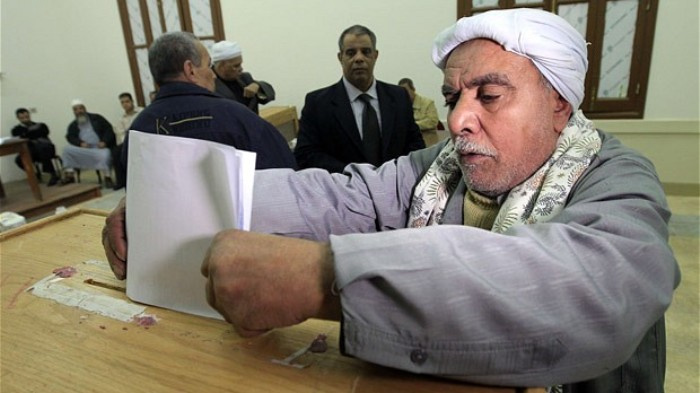Sisi and a Veneer of Democracy

Egypt held parliamentary elections after three years of political turmoil. The significant point in the parliamentary poll is the low number of turnout, a tiny three percent despite governmental incentives, such as reducing working hours on the day of election and President Abdulfattah Sisi's personal call for participation. Iranian Diplomacy has interview Hojjatollah Joudaki, Iran's former attaché in Egypt and Middle East analyst on the elections:
IRD: Why caused low participation in Egypt's parliamentary election? Was it due to the ban against parties such as the Muslim Brotherhood, or did it stem from the post-coup government's conduct?
HJ: media have report of a three-percent turnout, mostly from the senior citizens community, and not the youth. Also, there was rarely any attempt to vote after governmental offices closed earlier than usual on the day of election. There are several reasons for this minimal participation. First of all, Ikhwan (Muslim Brotherhood) has been banned from running for the elections. The Brotherhood retaliated with boycotting the election. Among Islamists, only salafis were allowed to take part in the competition, and these salafis see Sisi as vali-ye amr, the ultimate ruler whose words are binding.
The elections will go to the second round, since not enough votes have been cast. However, Sisi merely cares about the results, and not the quality of the election. Parliamentary poll can improve the international face of Egypt which has had no parliament in service in the past three years. The next parliament will be filled with pro-Sisi members, many remainders of Mubarak's regime, security and military forces, and also a number of entrepreneurs that have overlapping interests with the regime. The new parliament will be an aid to Sisi, whatever citizens' turnout is. Mubarak had the same attitude. He would be re-elected as president with only five million votes and not care about.
IRD: Is the government really OK with this?
HJ: They have made various efforts to bring the public to the polls. Sisi made a speech calling the Egyptians to participate in the elections, just as they participated in overthrowing the Brotherhood. But Egypt is deeply disillusioned with politics now. The other point is that Sisi is heavily dependent on the army, and the army is the key economic player in Egypt. Thus, whatever the composition of the parliament, it will serve Sisi. The army is also the key political player in the country and has set a have price for popular participation in politics. During the last year, 100 opposition members have died inside the prison. Long-term sentences for Brotherhood supporters have been also prohibiting engagement in political activities.
IRD: Could the new parliament play a decisive role in Egypt's political future or it will be just a showcase for the country's pseudo-democracy?
HJ: As you said, it will be not more than a showcase; but the Sisi regime is content with that. EU and the US have scaled down relations with Egypt after the coup, but a pseudo-democratic regime can be a justification to resume ties. That is why the government is pushing for parliamentary election to present a veneer of representative democracy. But future MPs will actually be appointed by the government.
IRD: How would the government and the parliament interact?
HJ: The government will try to pass its intended bills through the parliament. Since five percent of the members are appointed by the government according to the constitution, the parliament will be totally aligned with the government. They can help the government solve the issues in the way it wants. This will not be a parliament which cares about the civil society or tries to be popular. It is just an aid for a regime created by a coup. One should not expect any democratic measures from the new parliament.

